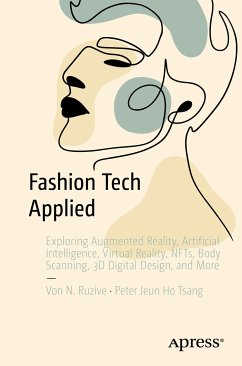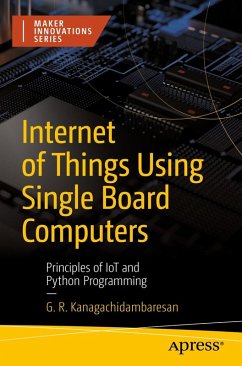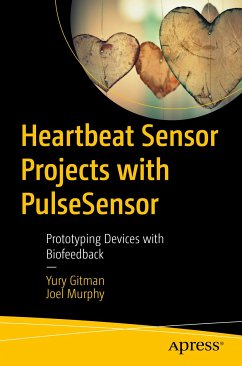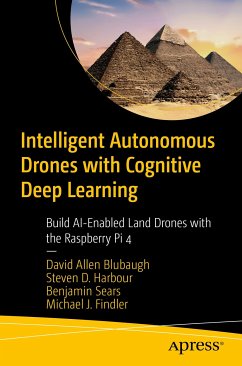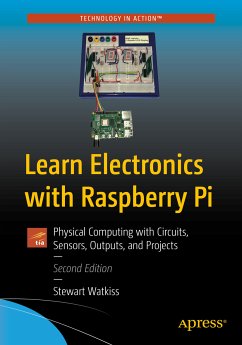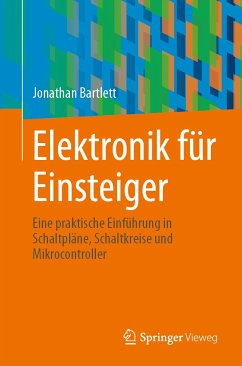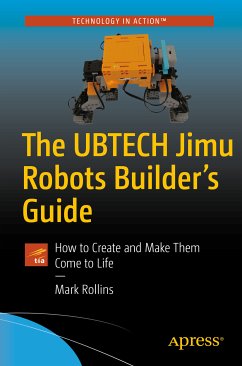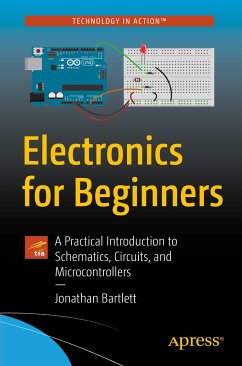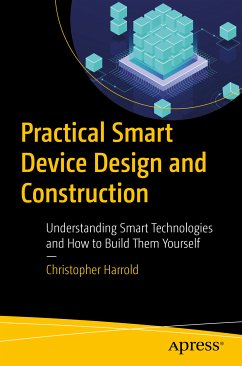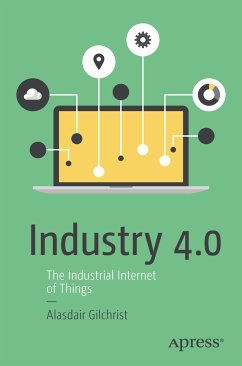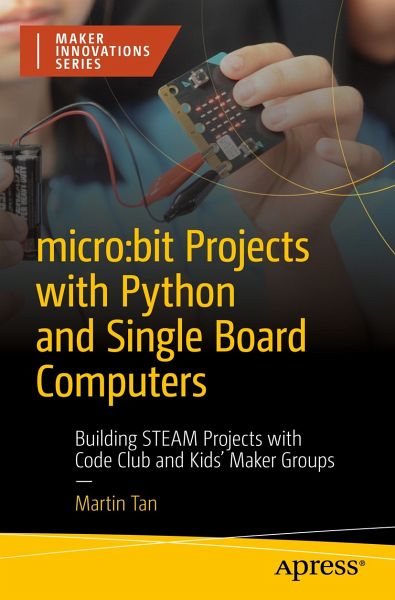
micro:bit Projects with Python and Single Board Computers (eBook, PDF)
Building STEAM Projects with Code Club and Kids' Maker Groups
Versandkostenfrei!
Sofort per Download lieferbar
47,95 €
inkl. MwSt.
Weitere Ausgaben:

PAYBACK Punkte
24 °P sammeln!
Build different components of larger systems using class sets of micro:bits with Python in a truly collaborative way. First you'll explore ways to harness the capabilities of the humble micro:bit and learn to creatively overcome some of its limitations; learning practical text-based programming along the way. We'll then move on to building projects that allow multiple micro:bits, and other microcontroller boards and parts like the Raspberry Pi, to communicate with one another, and coordinate their operations to build larger systems.Rather than just being a guide to learning these skills, this ...
Build different components of larger systems using class sets of micro:bits with Python in a truly collaborative way. First you'll explore ways to harness the capabilities of the humble micro:bit and learn to creatively overcome some of its limitations; learning practical text-based programming along the way. We'll then move on to building projects that allow multiple micro:bits, and other microcontroller boards and parts like the Raspberry Pi, to communicate with one another, and coordinate their operations to build larger systems.
Rather than just being a guide to learning these skills, this book will include tips and stories about implementing the these ideas in classrooms, Code Clubs, and Maker environments. Practical logistics for preparation and easy set-up, as well as, acceptance criteria and accountability for students and participants is included. These ideas were gained over years of running a Code Club and running Maker workshops and events.
You'll learn about programming collaborative solutions and design logic. Then you'll scale that logic up to more complex projects. By the end, you'll have added additional electronic and physical components to projects that interact with the world. You'll create fun inventions together, using hardware, coding, electronics, physical objects, and e-textiles.
What You'll Learn
Who This Book Is For
Makers and instructors interested in starting group projects while learning to code and gain other Maker skills along the way.Essential information is provided in a form that enables beginners and intermediate Makers to get hands-on quickly, but with enough depth to keep building on these projects and pushing the boundaries.
Rather than just being a guide to learning these skills, this book will include tips and stories about implementing the these ideas in classrooms, Code Clubs, and Maker environments. Practical logistics for preparation and easy set-up, as well as, acceptance criteria and accountability for students and participants is included. These ideas were gained over years of running a Code Club and running Maker workshops and events.
You'll learn about programming collaborative solutions and design logic. Then you'll scale that logic up to more complex projects. By the end, you'll have added additional electronic and physical components to projects that interact with the world. You'll create fun inventions together, using hardware, coding, electronics, physical objects, and e-textiles.
What You'll Learn
- Solve problems and create art by modelling solutions and ideas with a combination of Python coding, electronic systems engineering, and creative design.
- Navigate the logistical and unique challenges that come with running your own Code Club, Makerspace, or feeding these activities into STEAM design and technology curriculums.
- Take new Makers from simply copying and duplicating through to debugging and understanding.
Who This Book Is For
Makers and instructors interested in starting group projects while learning to code and gain other Maker skills along the way.Essential information is provided in a form that enables beginners and intermediate Makers to get hands-on quickly, but with enough depth to keep building on these projects and pushing the boundaries.
Dieser Download kann aus rechtlichen Gründen nur mit Rechnungsadresse in A, B, BG, CY, CZ, D, DK, EW, E, FIN, F, GR, HR, H, IRL, I, LT, L, LR, M, NL, PL, P, R, S, SLO, SK ausgeliefert werden.



